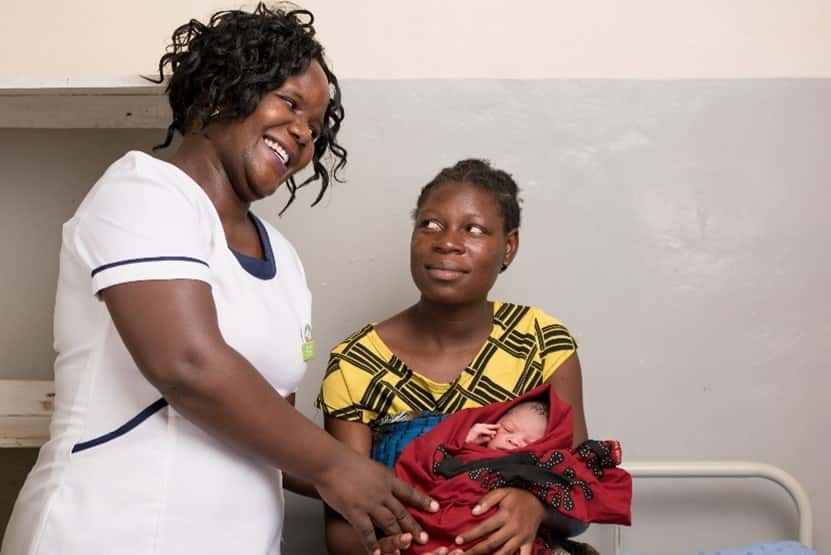Hundreds more midwives trained in Malawi as part of the continuation of the 10,000 Happy Birthdays project


The 10,000 Happy Birthdays project, which began in 2014 continues in Malawi, training hundreds more midwives throughout 2024 thanks to a collaboration of partners, including Rotary, the International Confederation of Midwives, the Association of Malawian Midwives (AMAMI) and the Government of Malawi.
Malawi has one of the highest maternal mortality rates globally, with 381 deaths per 100,000 births (UNICEF, 2023/24). The country also struggles with a high burden on newborn mortality, at 18.7 deaths per 1000 live births (HNN, 2022). Many of these deaths are preventable and well- trained midwives are vital to help save more lives of mothers and newborns.
The continuation of the 10,000 Happy Birthdays project in 2024 will see over 700 midwives and healthcare providers from the Lilongwe and Mzimba regions upskilled, utilizing the Helping Mothers and Babies Survive (HMBS) training programs.
Through the HMBS training programmes, training focuses on normal birth and newborn resuscitation. The sessions aim to equip midwives with essential skills and knowledge to prevent, identify, and manage the leading causes of maternal and newborn mortality and morbidity.

Image: Mother Caroline, experienced a post-partum hemmorhage, but thanks to her midwives being part of the 10,000 Happy Birthdays program, she survived.
To enhance learning outcomes further, MamaBirthie simulators are providing important hands-on training opportunities for healthcare personnel and students – and have been distributed to the health facilities and schools in which the participants work and study. The aim is to encourage continued on-site practice after the initial training has concluded. These simulators were distributed to increase the impact of this project as part of Laerdal’s Buy One, Gift One program.
In our context one of the challenges we face is that most women do not attend the antenatal visits. This makes it hard to identify early if they have any challenging conditions that may contribute to a higher risk of maternal or newborn mortality. This means as midwives we need to be ready to deal with life-threatening situations on the day of birth. Finding time to train has been a challenge, because of how busy we are as midwives. Assigning dedicated time for this training session – and understanding how important it is to continue hands-on practice at our places of work, has made me feel more confident when approaching clinical emergencies. In particular, team scenario trainings have really helped. I have learned that in a hospital setting we don’t work as individuals, but instead as team. The training has resulted in better communication and collaborative working. This transfers to providing better quality care to the mothers and babies we care for
Partners involved in continuing the implementation in Malawi in 2024 include Rotary Clubs in Norway and Malawi, the Ministry of Health Malawi, the Association of Malawian Midwives (AMAMI), International Confederation of Midwives (ICM), and the local governments of Lilongwe and Mzimba.